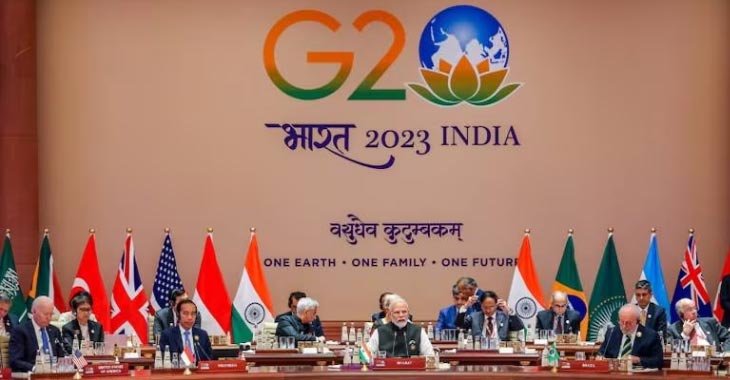The G20 leaders, as part of the New Delhi Declaration, have acknowledged the significance of startups and micro, small, and medium-sized enterprises (MSMEs) as drivers of innovation and employment. These entities are considered natural engines of growth and instrumental in socio-economic transformation, as stated in the declaration. “They are key to socio-economic transformation by driving innovation and creating employment,” the declaration said among measures for global economic growth. In August, the G20 leaders introduced the ‘Jaipur Initiative’ to facilitate the seamless flow of information to MSMEs, aiming to address issues related to inadequate access to market and business-related information faced by these enterprises.
Additionally, the declaration underscores various measures for global economic growth, including those related to climate change, counterterrorism, gender equality, green development, financial inclusion, digital public infrastructure, and more. It emphasizes the role of startups and MSMEs in driving innovation and employment as part of the broader efforts to foster economic growth.
The G20 has also endorsed the Regulatory Toolkit for Enhanced Digital Financial Inclusion of MSMEs and promoted responsible, sustainable, and inclusive use of digital technology by farmers and agritech startups and MSMEs. Gender-responsive policies for creating an inclusive digital economy for women-led and –owned businesses, including MSMEs, have also been highlighted.
A G20 Policy Recommendation paper by the World Bank recently highlighted the role of digital public infrastructure (DPI) in advancing financial inclusion and productivity gains for MSMEs by providing them with access to financial services and information through digital channels.
“MSMEs are a critical component of most economies, accounting for a significant portion of employment and economic activity. However, MSMEs often face challenges in accessing finance, particularly in developing countries, where financial systems may be less developed,” the World Bank document prepared with inputs from the Ministry of Finance and the Reserve Bank of India (RBI) had said.
The Global Partnership for Financial Inclusion (GPFI) has also prioritized improving access to finance for MSMEs in its efforts to advance financial inclusion globally for the next three years (2024-2026).
“Credit access for MSMEs and digital financial inclusion in G20 and non-G20 countries to provide financially excluded and underserved populations with a range of formal financial services are the two existing prioritized topics for GPFI. The platform will continue to focus on the two areas “which have been greatly significant in the efforts to advance financial inclusion globally,” the action plan document said.

